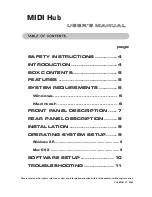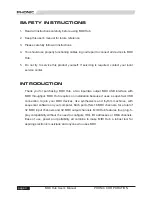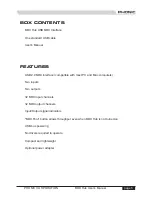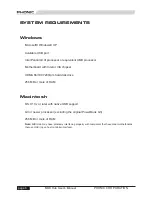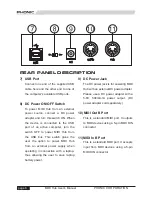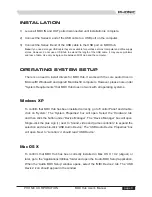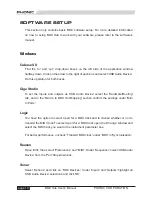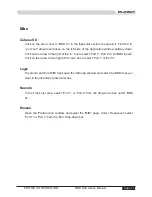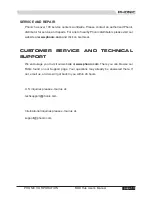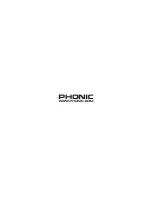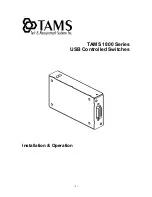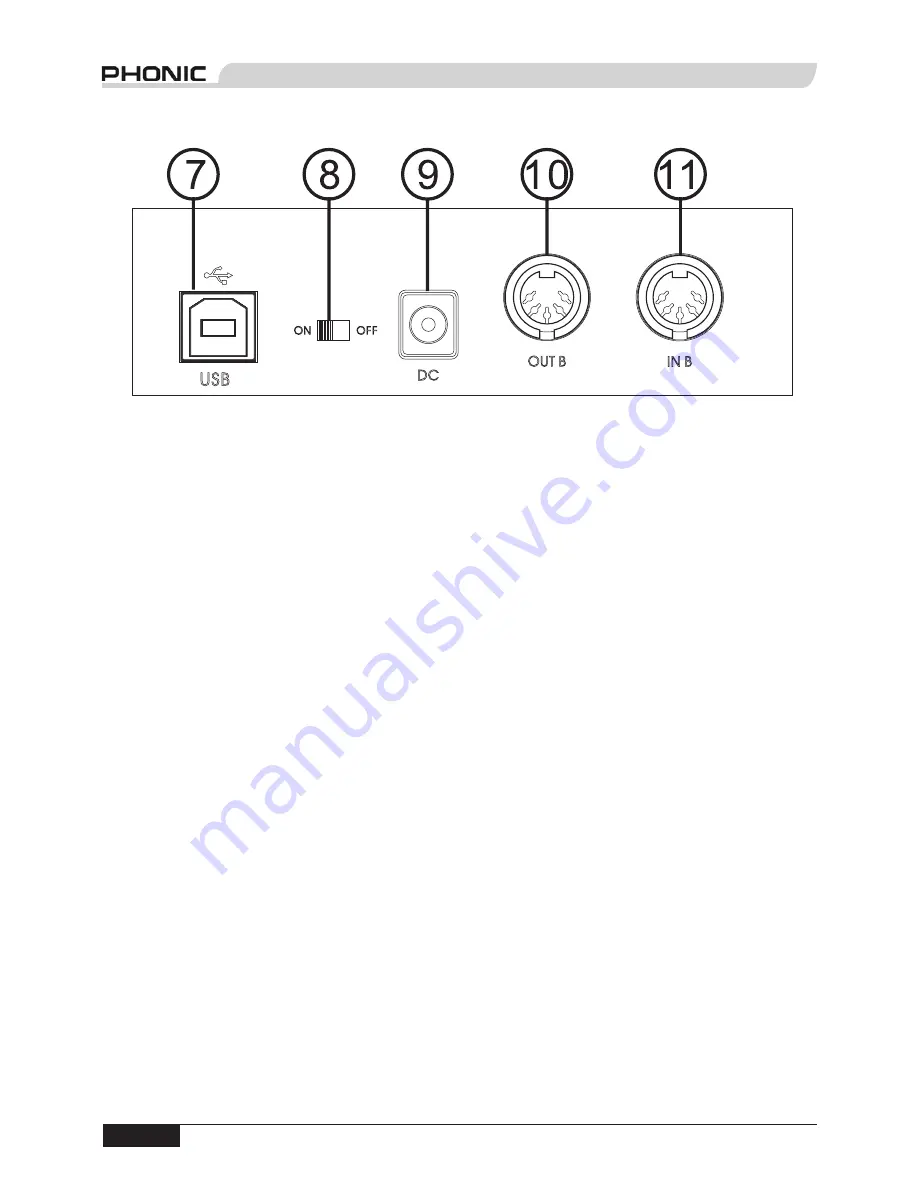
MIDI Hub User's Manual
PHONIC CORPORATION
page 8
page 9
PHONIC CORPORATION
MIDI Hub User's Manual
REAR PANEL DESCRIPTION
9) DC Power Jack
The DC power jack is for powering MIDI
Hub with an external DC power adapter.
Please use a DC power adapter with a
5-9V, 500mA-1A power output. (DC
power adapter sold separately.)
10) MIDI Out B Port
This is a standard MIDI port. It outputs
to MIDI devices using a
5-pin MIDI DIN
connector.
11) MIDI In B Port
This is a standard MIDI port. It accepts
input from MIDI devices using a 5-pin
MIDI DIN connector.
7) USB Port
Connect one end of the supplied USB
cable here and the other end to one of
the computer's available USB ports.
8) DC Power ON/OFF Switch
To power MIDI Hub from an external
power source, connect a DC power
adapter and turn this switch ON. When
the device is connected to the USB
port of an active computer, turn the
switch OFF to power MIDI Hub from
the USB bus. This switch gives the
user the option to power MIDI Hub
from an external power supply when
operating in connection with a laptop,
thus allowing the user to save laptop
battery power.



